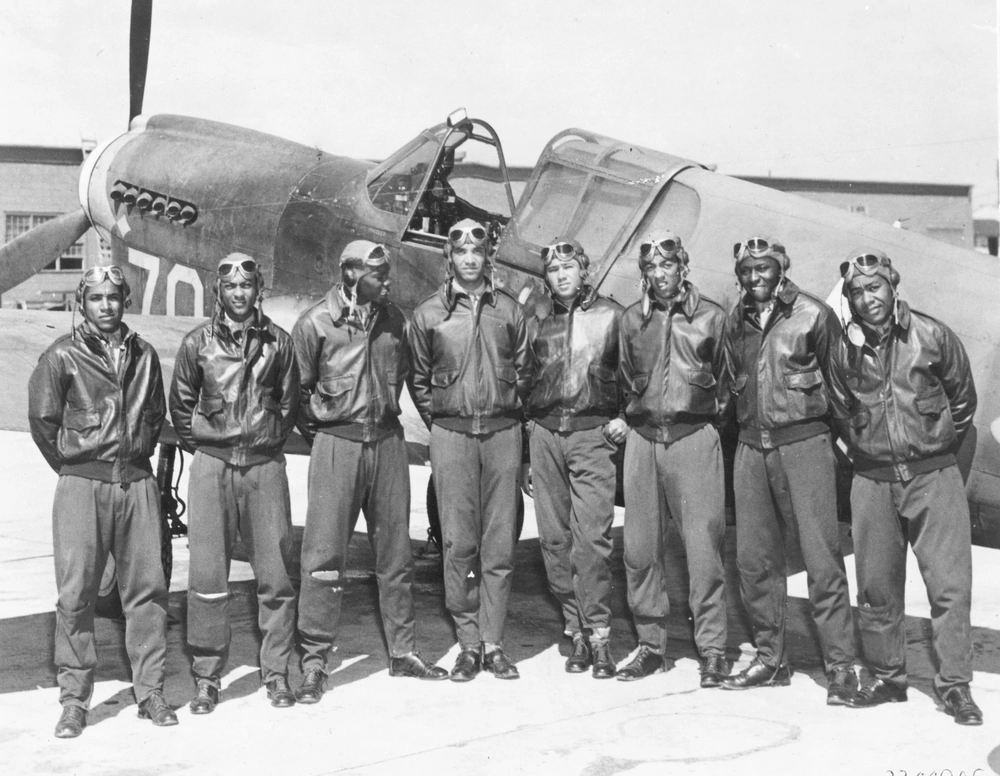Prepare For Your First PCS Move

Prepare For Your First-Time Permanent Change of Station Move (PCS)
While there may be an exception or two along the way, typically every military member will experience a permanent change of station move or PCS. This part of military life can feel overwhelming the first time, but fortunately, you are not alone, and there is much help available at all stages of the process.
Read more: The Relocation Assistance Program
What is a PCS Move?
PCS moves are required when a servicemember is reassigned to a new base. PCS moves are typically required for assignments lasting between two and four years, though one-year “unaccompanied” or “remote” assignments are also possible.
PCS Compared With TDYs
By comparison, Temporary Duty can last as little as a single day, is no longer than 180 days in length, and does not result in the servicemember being reassigned to a new base or permanently relocating.
You may typically ship household goods for a Permanent Change of Station move; shipping personal property associated with a Temporary Duty assignment is less common but possible under the right circumstances.
PSC Move Issues For Military Spouses
A permanent change of station move has many implications for military spouses.
- Anyone who accompanies the service member to the new location must be registered in DEERS and must be mentioned by name on the military orders; otherwise, the government will not reimburse PCS expenses for the spouse.
- In cases of an overseas PCS, the military spouse must be “command sponsored,” meaning they are listed on the PCS orders and approved by the gaining command to accompany the service member to the overseas duty location.
- TDY orders typically do not include spouses for duty-related travel.
- Military spouses moving from one state to another may be able to transfer professional licenses to the new state and be reimbursed by the DoD for doing so. Don’t overlook this part of your PCS move; you could save up to $1000 under the current rules for spouse license transfer.
- Spouses may have hiring preference at military bases, especially on overseas tours. For some, knowing about these policies before travel can make the transition easier to plan for and deal with.
Read more: PCSing Overseas as a Military Spouse: 5 Things to Remember
PCS Orders: Accompanied Tours vs. Unaccompanied Tours
There are some PCS moves that allow spouses and some that do not. Those that do are known in the military as “accompanied tours”, those that do not are called “unaccompanied tours,” and while there are very few assignments in the United States or its territories, there are plenty overseas. If you want an accompanied tour, your spouse and/or dependents must be command sponsored.
Read more: PCS Season: What is Command Sponsorship for Overseas Tours?
Things To Know
- An unaccompanied tour for a married service member typically lasts one year (the same as for unmarried troops), but an accompanied tour lasts for at least two years and as long as four years.
- Unmarried troops may have unaccompanied tours lasting one year (typically remote or hardship tours) or two years.
- Those married and PCSing overseas without their spouse may be offered compensation for maintaining two households at once. There is also a Dislocation Allowance or DLA, meant to offset some of the costs related to the transition to a new assignment. It can be paid in advance or after the travel is finished.
- In some cases, on an “accompanied” tour, a spouse may have to wait to travel to the new duty location. This is typically required when a housing waiting list is in effect, requiring the service member to live in the barracks or other temporary living facilities while waiting for their turn to be offered local housing.
Learn more: PCS Season: 5 Things to Know About Unaccompanied Tours
Preparing For Your PCS Move
When PCS orders are given to the servicemember, it begins a long process of appointments and preparations to move. This includes a checklist of appointments and accomplishments that must be completed in order to properly manage what is known as “out-processing” from the losing base.
Part of that out processing involves attending briefings and seminars explaining how PCS moves work, what you are expected to do, and what timetable you are expected to get these chores completed.
Read more: Best PCS Tips For Military Families
Moving Day
A common practice among those who PCS? Using the move as a sort of spring cleaning. It is a very good idea to pare down, to donate unused items, and discard broken or unserviceable belongings prior to moving day. Part of the motivation to do this is associated with the weight allowances you are given for your PCS move.
Things to remember:
- Your household goods must weigh no more than the limit for your rank and family size, or you may have to pay for the excess weight without the government reimbursing you.
- As mentioned above, your weight restriction depends on rank and family size. These are subject to change, and you will need to check with your losing base’s Transportation Management Office (TMO) for current guidance.
- You can also use an app from the U.S. Transportation Command to estimate your household goods weight and compare it to the current limit.
Two Types of Moving Days
It may sound confusing at first, but there are two types of moving days you will need to prepare for. One is for so-called unaccompanied baggage, a smaller pack-out of things you will need right away at the new duty location.
These can include household items, uniforms, and other daily-use belongings. This shipment, typically limited at 2 thousand pounds, travels by air to your new assignment and arrives much faster than your household goods, which may travel by boat.
You will need to arrange a household goods pack-out and an unaccompanied baggage pack-out with your losing base Transportation Management Office or TMO.
Don’t Pack Your Own Things
Some military-oriented blogs advise you to pack your own household goods into boxes before the movers come. Do not do this unless specifically directed to do so as part of your out-processing briefing or PCS appointments.
Items damaged in transit are a liability for the shipping company. Many have policies that forbid the customer from packing their items or refuse to accept liability for self-packed items in transit.
Don’t Let The Movers Pack Everything
That may sound like a contradiction to the information above, but in this case, we’re talking about not letting the movers access or even see items you need to hand-carry with you to your next assignment.
Gather all documents and items you need to take with you for the move and physically remove them from your home. Put them in your car or another alternate location; otherwise, they risk getting accidentally packed and shipped–and your household goods may take months to arrive at your duty station, depending on location.
What The Movers Will Not Pack
Regardless of the destination, most prohibited items on your moving truck include:
- Ammunition
- Caustics, solvents, degreasers
- Flammable materials
- Illegal items
Believe it or not, alcohol and unloaded firearms may be permitted as long as they do not violate current laws for storage, shipping, etc.
PCSing overseas may include additional restrictions; some countries prohibit the importation of so-called adult material, some countries may not allow firearms of any type, etc.
Read more: PCS Moves Fact and Fiction
If Your Household Goods are Damaged in Transit
Any damage to your household goods may be reimbursable if the moving company is liable and you file a claim. It is smart to photograph your household goods extensively prior to shipping to document their condition. If you find damage on the other side of the move you have a specific window of time to file a claim. Don’t delay.
Read more: PCS Move Problems: What to do if Your Household Goods are Damaged
How to Pay for a PCS
Military members are provided certain benefits for PCS travel. They are also given a government travel card to pay for authorized expenses for themselves and the dependents listed on their orders during PCS travel.
There are a number of special pay options for PCS moves, including:
- Advance pay
- Per diem
- Mileage
- Compensation for lodging expenses
- Compensation for dependent travel
The service member learns about many of these during their out-processing appointments and there are more types of financial help for these moves than you might think.
Read more: PCS Pay Entitlements
Shipping a Vehicle
Suppose you are being reassigned to a stateside base after a current tour in CONUS. In that case, you are typically responsible for relocating your vehicle to the new assignment though the government may reimburse you for travel expenses.
You should only expect to have to ship a vehicle when going to an overseas base where you are allowed to do so. There are some simple guidelines to remember when PCSing with your vehicle:
- Weight limits apply
- Not all vehicles may be shipped
- Only one vehicle may be shipped overseas
- Some countries do not allow you to ship your vehicle at all
When shipping a car or truck, review the host country’s regulations to ensure your vehicle is acceptable. Some don’t allow vehicles made before a certain date due to emissions standards; others may require you to remove all customizations, peel-off window tints, daytime running lights, or other features.
To ship your car, you are required to follow the government’s procedures and service providers–this isn’t a case of your choosing a shipper and getting reimbursed later. Your vehicle must be authorized on your PCS orders and clear Customs on both the departing and arriving sides.
Read more: Shipping a Privately Owned Vehicle Overseas
Shipping a Pet
Not all PCS moves allow pets. Moves within the USA don’t have any pet restrictions the way overseas PCS moves do;those going on one-year unaccompanied tours of places like South Korea, Iceland, or Guam may not be permitted to bring pets with them at all, while those going to Germany, England, or Spain may be allowed to do so.
Accompanied tours are often more pet-friendly but there are restrictions and regulations to be aware of when making decisions about whether to ship your pet to the new location.
You may be required to pay for your animal to wait out a quarantine period in the overseas location and other restrictions may apply depending on the country.
Read more: Moving the Family Pet
Sponsor Program
Servicemembers are typically assigned a sponsor from the gaining unit. The sponsor’s job is to help the new servicemember relocate, which may involve meeting the travelers at the airport at the new location, helping them check into temporary lodging and finding their way around the base.
The sponsor should contact the servicemember once orders are available–they will share information about the base, the local area, what to expect when they arrive, and who will meet the servicemember when they do.
If you receive PCS orders and do not hear from a sponsor on the gaining base side, contact the unit orderly room or command support staff at your gaining base and ask to be put in touch with your sponsor.
Things To Remember About Travel to a New Duty Station Stateside
- You may be allowed permissive temporary duty or permissive TDY for house hunting. This is not automatic, so be sure to ask for this option.
- Dependents must be listed on your PCS orders and be registered in DEERS
- You will move your vehicle at your own expense but may be reimbursed for mileage and travel
- Your travel documents, including passport, government ID, and government travel card, should all be unexpired and up to date.
Things to Remember About Travel to Your New Duty Station Overseas
- You will be required to use the transportation method most convenient to the government. This may be a commercial aircraft, a government plane, or other means. You should be given further information and/or instructions during your out-processing appointments.
- All travelers PCSing overseas are required to clear Customs.
- It may be tempting to buy local currency in advance. Ask your sponsor about doing this before purchasing to avoid high conversion rates online, at the airport, or elsewhere.
- Some travelers will fly directly into overseas military bases, while others may land at a nearby commercial airport. Those making stateside-to-stateside moves may drive or fly to their new location.
- Contact your sponsor to make arrangements or learn the best way to proceed from your arrival point. In some cases the sponsor will pick you up; in others, you may be directed to take a shuttle or taxi to the base or to your temporary lodging facility.
Read more: Things Not to Forget When PCSing
Finding a Home
If you are PCSing to a stateside base, contact the base housing office or its equivalent to learn how to be added to on-base housing waiting lists, opportunities for buying or renting in the local area, etc.
If you are PCSing overseas, the base housing office likely has agreements with local landlords in the area and you will need to coordinate with the housing office to find an approved property on base or get on the on-base housing wait list.
Receiving Your Household Goods
When you have completed travel to the new assignment, check in with the gaining base’s Transportation Management Office (TMO) to schedule your unaccompanied baggage and household goods deliveries. Don’t expect your household goods shipment to be there when you arrive–it can take months to do so if you are moving overseas.
Your unaccompanied baggage is not likely to beat you to your destination, but your wait for these items is far shorter in many cases. You can track and manage your shipments using the Defense Personal Property System.
Read more: What to do if Your Household Goods are Damaged
About the author
Editor-in-Chief Joe Wallace is a 13-year veteran of the United States Air Force and a former reporter/editor for Air Force Television News and the Pentagon Channel. His freelance work includes contract work for Motorola, VALoans.com, and Credit Karma. He is co-founder of Dim Art House in Springfield, Illinois, and spends his non-writing time as an abstract painter, independent publisher, and occasional filmmaker.


